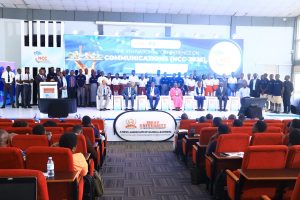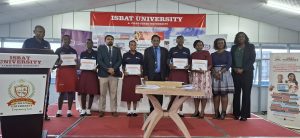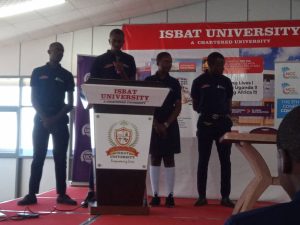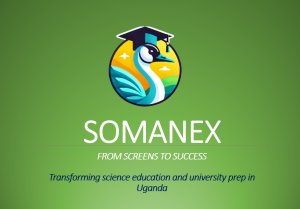Fatima Aloi Comprehensive Girls School: Pioneering Digital Futures with ICT Club Launch
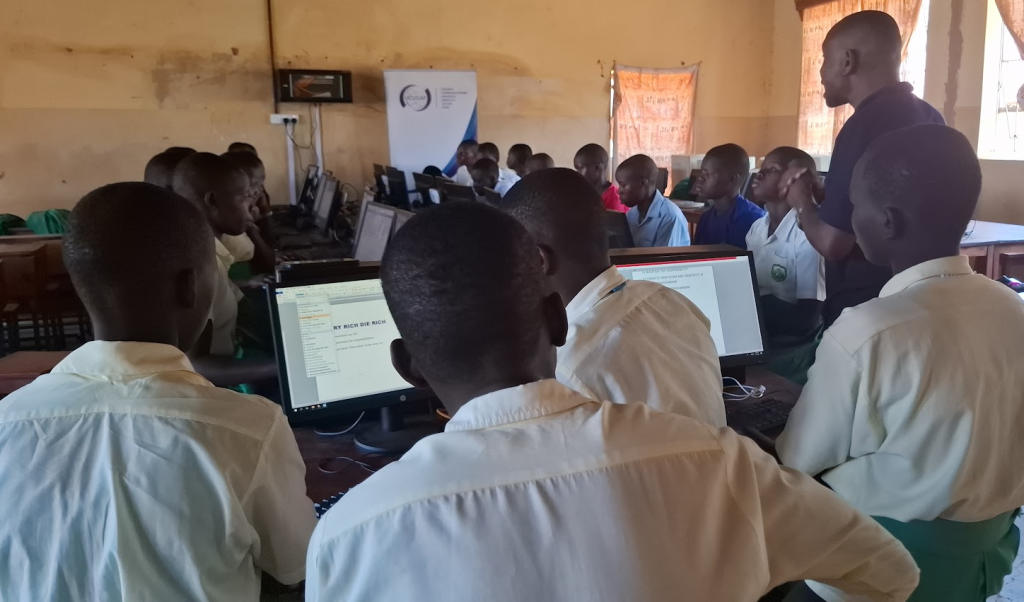
Fatima Aloi Comprehensive Girls School: Pioneering Digital Futures with ICT Club Launch
On February 17th, 2025, a significant step towards digital empowerment for young women was taken at Fatima Aloi Comprehensive Girls Secondary School, located in Aloi Sub-county within the Alebtong District. An impactful ICT Club activity was successfully conducted, bringing together 56 participants and culminating in the establishment of the club’s vital leadership structure. This transformative event was expertly facilitated by Moses Wamanga from KAWA, with key school contacts being Ongia Tobias (789881175, ongiatobi@gmail.com) and Ochieng John (774272701, ochengjohn@gmail.com). Two dedicated staff members from the school also attended the training, actively supporting the initiative.
A major achievement of the session was the successful establishment of the ICT Club and its leadership structure. KAWA collaborated closely with the school administration to guide students through the crucial process of electing their own leadership team, including positions such as President, Vice President, Secretary, and Treasurer. This inclusive approach fostered a strong sense of ownership and responsibility among the students, ensuring the club’s activities would be genuinely student-led. Furthermore, KAWA provided a standardized club constitution. This comprehensive document meticulously outlines the club’s mission, specific goals, membership requirements, and clear operational procedures, thereby ensuring that the club will continue to function effectively and sustainably long after KAWA’s direct involvement concludes.
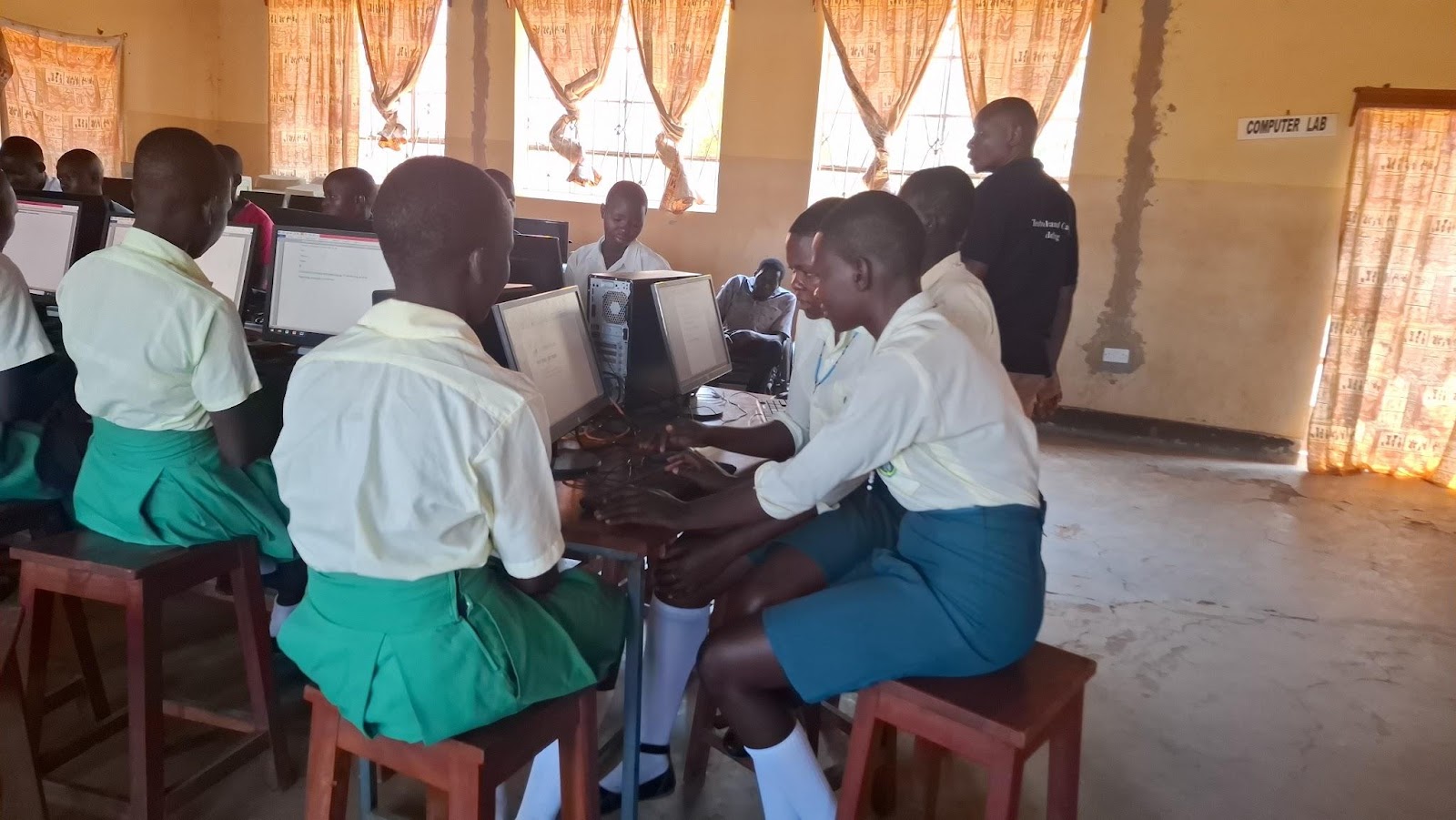
To bolster the club’s activities and enhance the learning experience, KAWA provided a diverse range of invaluable educational resources. Club members gained access to a dedicated central website (www.ictclubs.ug), serving as a rich hub for content including practical coding tutorials, curriculum materials, and even the presentation slides utilized during the launch. A comprehensive ICT Club Handbook was distributed in digital format, acting as a crucial guide for all club operations. This handbook covers essential topics such as leadership roles, meeting procedures, activity planning, and fundraising strategies, with a commitment to annual review to maintain its relevance. KAWA also curated a collection of topical video links on subjects like coding, accessible via their “Tutorials – ICT Clubs in Uganda” section (https://ictclubs.ug/tutorials/), offering students additional learning avenues. Moreover, comprehensive curriculum and training materials were provided under “ICT Club Innovations!” (https://ictclubs.ug/resources/), covering a broad spectrum of ICT topics from hardware and software to networking, programming, and vital digital citizenship.
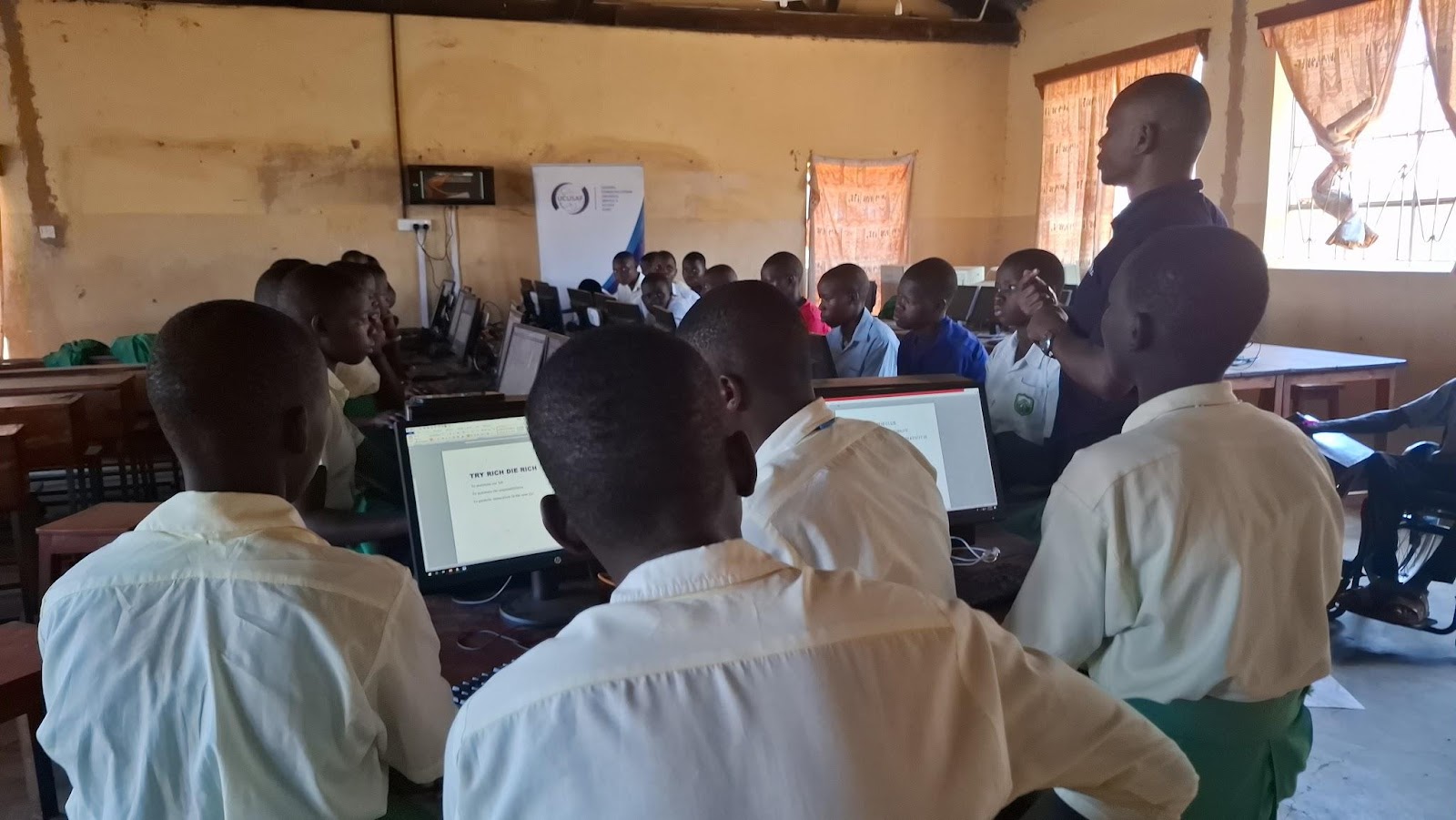
In addition to resource provision, KAWA conducted initial digital skills training for club members, focusing intently on practical skills vital for managing the school’s ICT resources and ensuring safe participation in the digital world. Key areas covered included ICT Lab Management and Sustainability, where students learned best practices for handling and maintaining equipment, scheduling lab time, and reporting issues. They also received training in Basic Computer Maintenance and Troubleshooting, gaining hands-on experience in diagnosing and fixing common hardware and software problems, which will help minimize downtime. Crucially, Internet Safety and Cybersecurity Awareness were emphasized, teaching students how to protect personal data, recognize online threats like phishing and malware, and understand their digital footprint. Furthermore, students participated in Introductory Programming and AI Concepts, engaging in hands-on coding clinics using Scratch and Python (with guidance on setting up VS Code) and learning to leverage the internet as a potent learning resource. They were also introduced to basic Artificial Intelligence (AI) concepts and explored their potential applications within their local community.
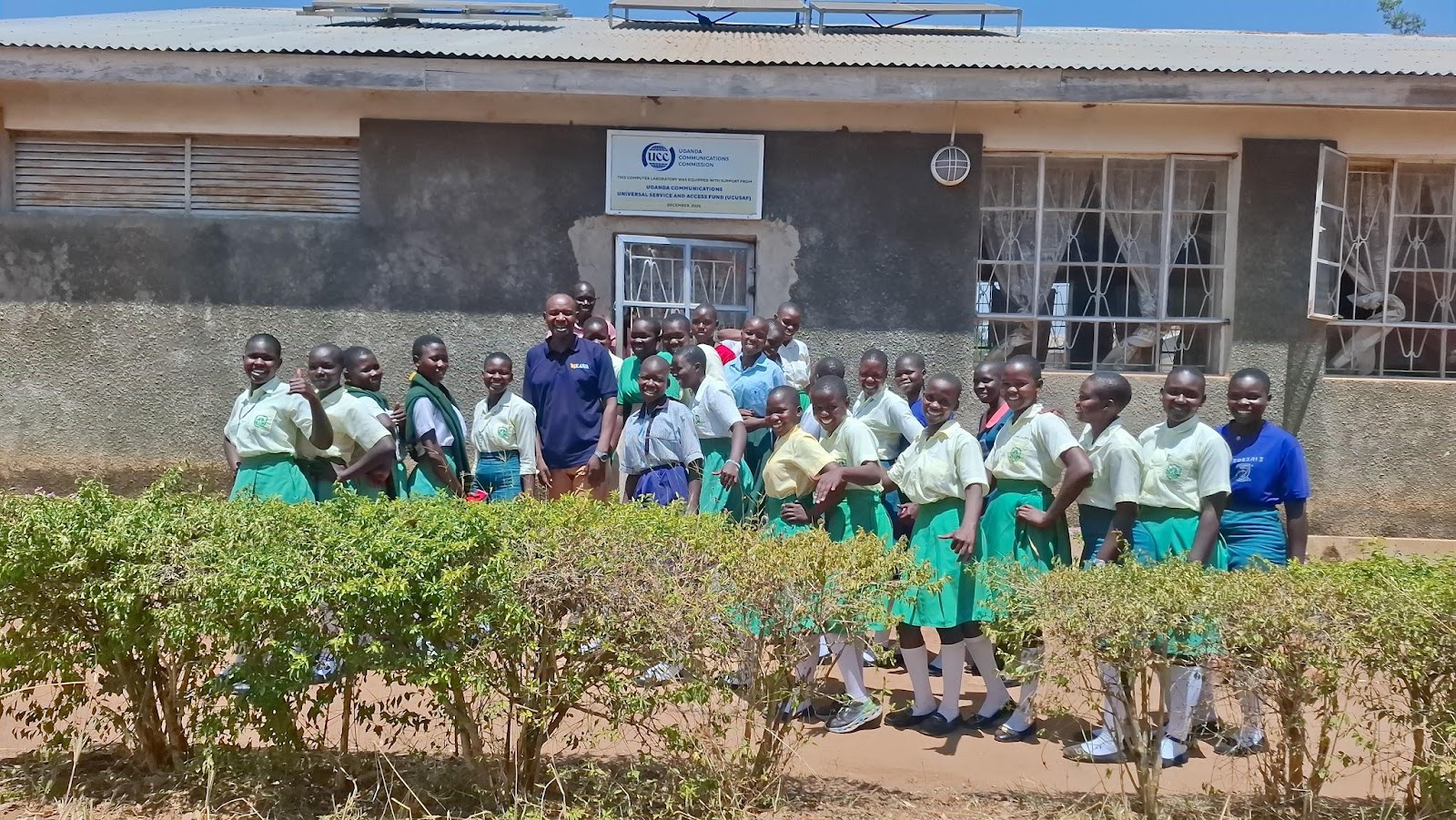
KAWA further facilitated stakeholder engagement and planning workshops that brought together the Headteacher, Club Patrons, and ICT Teachers. These collaborative workshops were designed to align goals, build capacity among school staff, and ensure that the ICT Club’s activities are seamlessly integrated into the school’s overall curriculum and strategic plan. KAWA is also actively working with the ICT teachers to develop a comprehensive annual ICT Club activity calendar, which will meticulously outline the club’s planned activities and events for the entire school year. KAWA is firmly committed to providing continuous support and training throughout the year, particularly focusing on areas like computer maintenance and coding clinics, as explicitly outlined in their contractual agreement. This sustained engagement will play a pivotal role in ensuring the ICT Club remains active and impactful, consistently enabling students to further develop their digital skills and capabilities.




